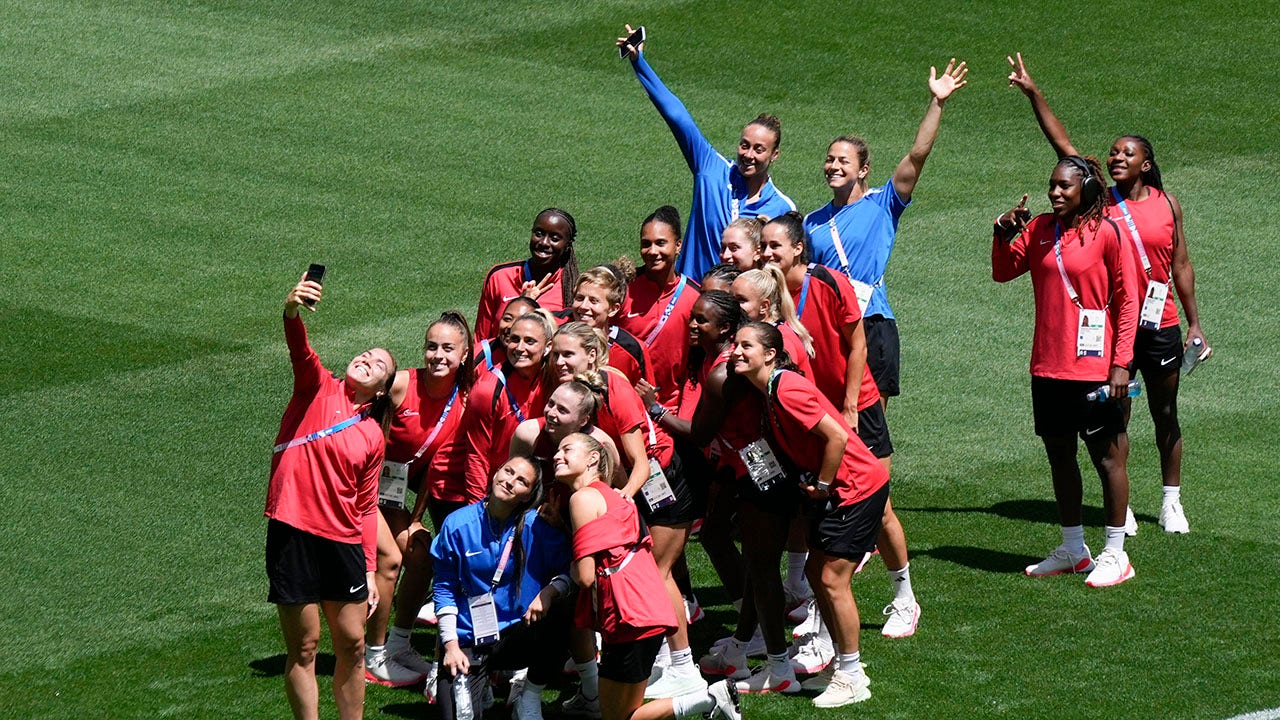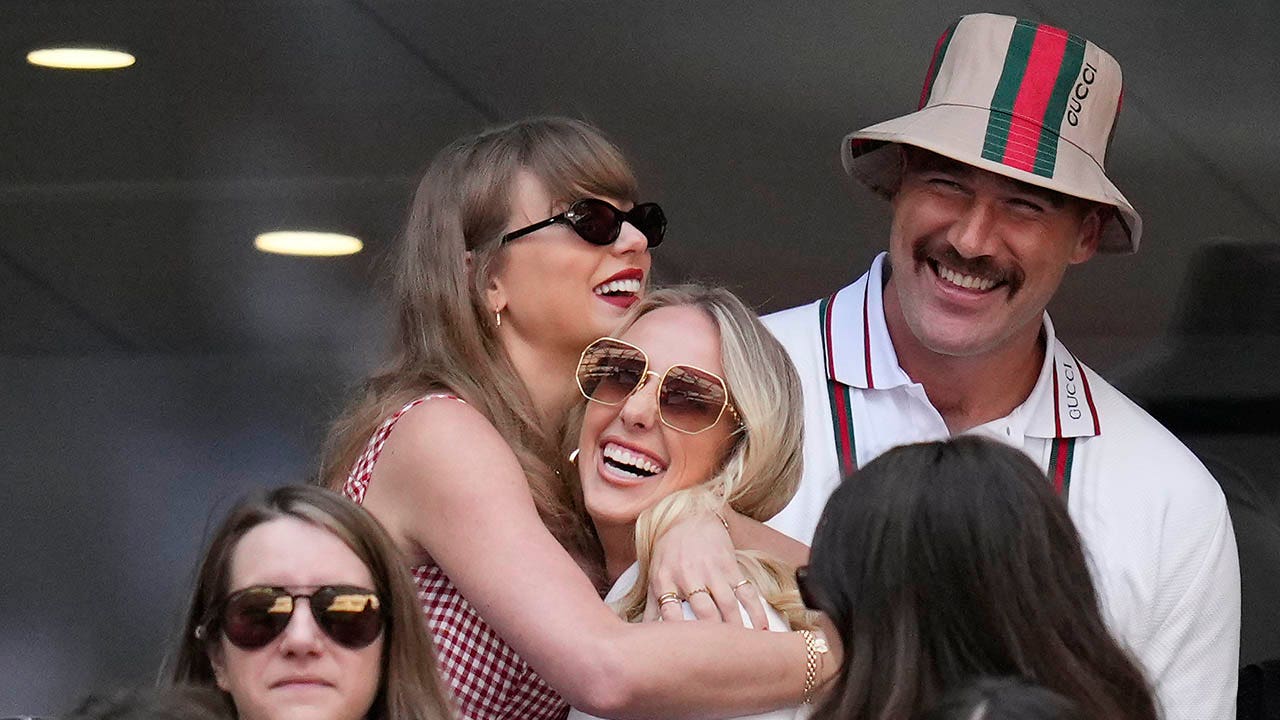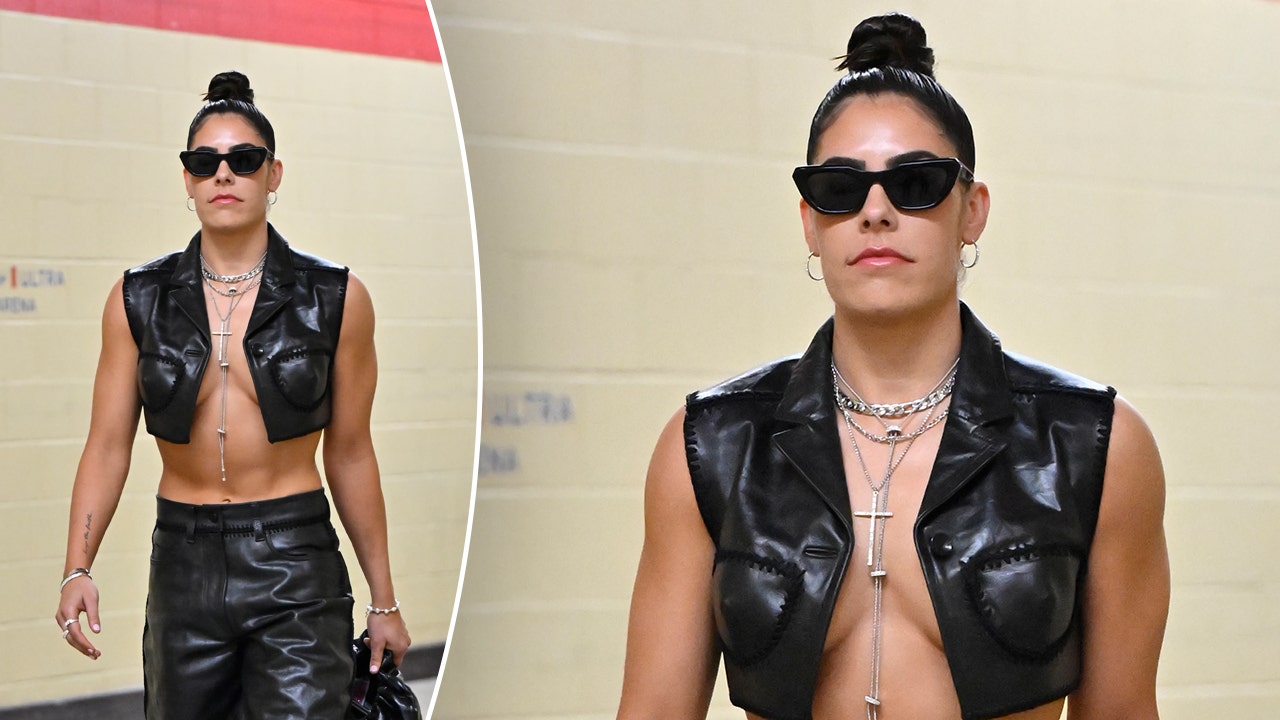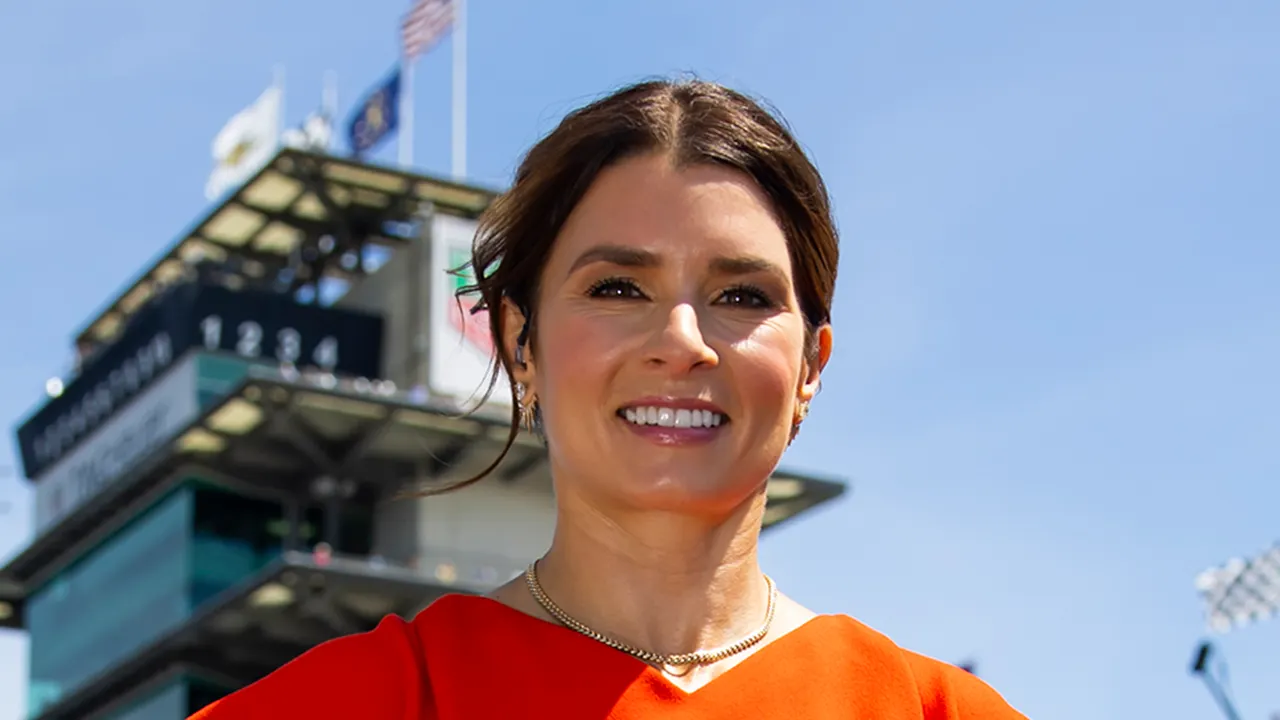It was past dusk when Marketa Vondrousova and her coach, Jan Hernych, made it back to their rented house near the Southfields Underground Station, almost a mile from the All England Lawn Tennis Club. Hours earlier, Vondrousova had beaten Ons Jabeur, 6-4, 6-4, to become the first unseeded player in the Open era to win the Wimbledon women’s singles title.
Waiting for Vondrousova at the house were family members, coaches and close friends. Many of them were inebriated from a combination of champagne and beer, including Hernych.
“I just went for the press and after two hours I came back and they were all drunk,” said Vondrousova during a phone interview in late May. It is her fondest memory of that Wimbledon win and what she thinks about most often as she begins the defense of her title on Centre Court this Tuesday.
“I always think about my family and the celebration with my box,” said Vondrousova, who marked the occasion by adding a tattoo of the numbers 150723, the date of the final, to a body already dotted with tattoo artistry. “That was the main thing that I wanted to do since I was playing in the final.”
Vondrousova’s career has been a series of spirals. The Czech, who turned 25 last week was the top-ranked junior in the world and won her first career title, in Biel, Switzerland, when she was 17. She also reached the final of the 2019 French Open, losing to Ashleigh Barty, 6-1, 6-3, and captured a silver medal at the Tokyo Olympics in 2021.
Vondrousova has also been injured. She has had two wrist surgeries that sidelined her for more than six months shortly after her 2019 run at the French Open.
Ranked No. 42 entering Wimbledon last year, Vondrousova called her run to the title “crazy,” partly because, going in, she had won just one match in four previous attempts there. The defining match was a comeback victory over Jessica Pegula, who led their quarterfinal 4-1 in the third set before Vondrousova won five consecutive games.
“She can play on any surface,” Henrych said. “She’s very aggressive, but she has variety and can hit a lot of shots that other players cannot do. She has unbelievable touch and very good reaction time.”
Weeks before Vondrousova won Wimbledon, her close friend Karolina Muchova reached the French Open final, before losing to Iga Swiatek in three sets. The loss made Vondrousova cry. An admitted sentimentalist, Vondrousova also felt sad for Jabeur after beating her at Wimbledon.
“It was actually very tough to watch Ons cry because I knew how much she wanted it,” said Vondrousova, who is now ranked No. 6. “I felt the same in Paris and then in Tokyo, so I know the feeling. But that’s tennis.”
Much has happened to Vondrousova in the last 12 months. At the start of this season she suffered from a mysterious virus that made her feel like her body was “falling apart,” she said. In March, her grandfather died, forcing her to pull out of the Miami Open and return to Prague. More recently, her marriage to Stepan Simek, whom she wed in 2022, dissolved. In ways, Vondrousova said, the adversity has bolstered her.
“Even if you are OK you can feel it on the court sometimes,” said Vondrousova, who retired midmatch with a right hip injury during a tournament in Berlin on June 20. “But tennis can help you to be better and stronger, too.”
It was her loss to Barty at the French Open that taught Vondrousova to enjoy the moment instead of worrying about the outcome. She was determined to do that at Wimbledon last year. But will she be able to follow her own advice again this year?
“This year of course she will feel more pressure as the defending champion,” Henrych said. “Last year she was relaxed because she didn’t expect much.”
Vondrousova said it was going to be stressful to go back to Centre Court.
“I can just say to myself to be calm and that you won so you have nothing to prove,” she said. “I just want to enjoy it, and we’ll see what’s going to happen.”






